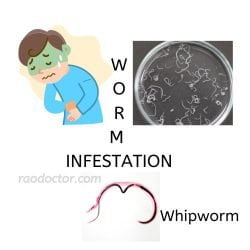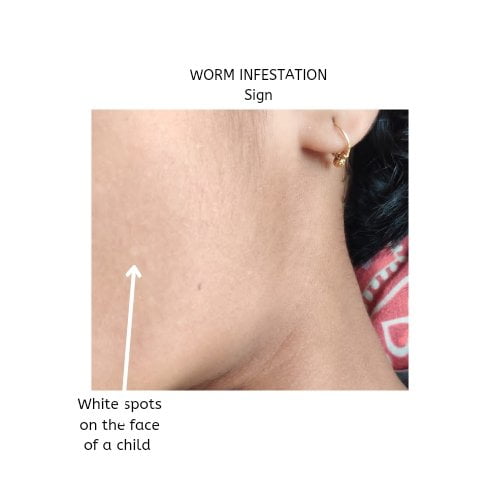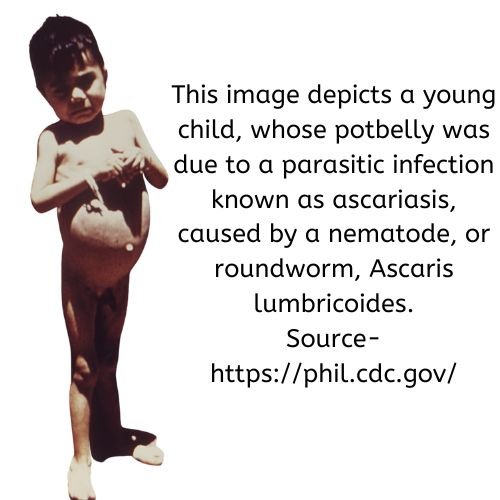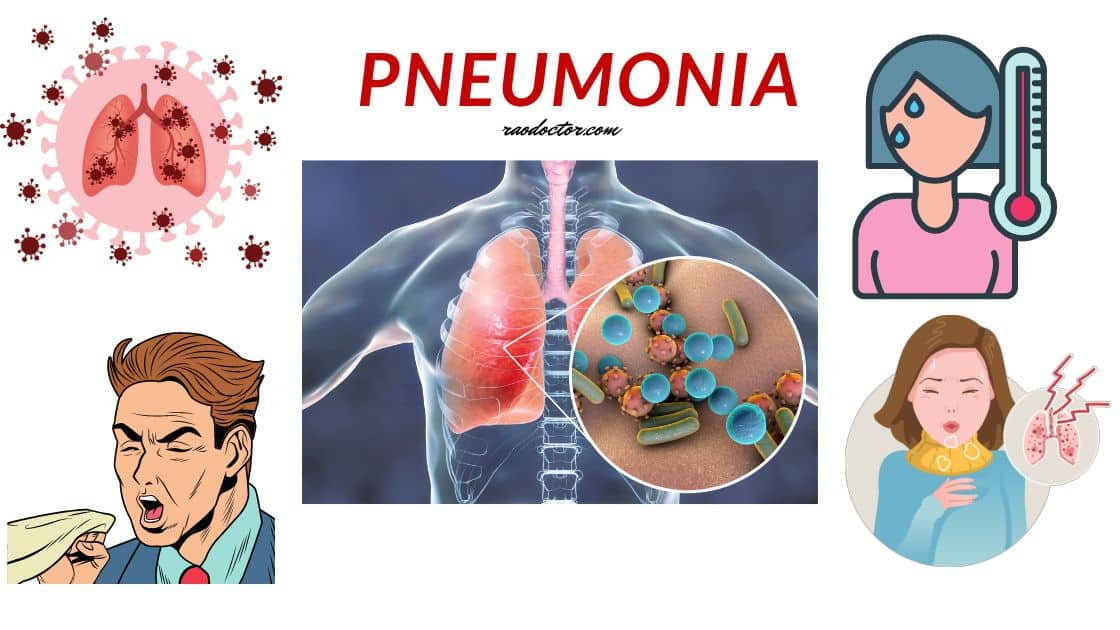Table of Contents
And live a healthy life
By Dr. K. P. V. Rao
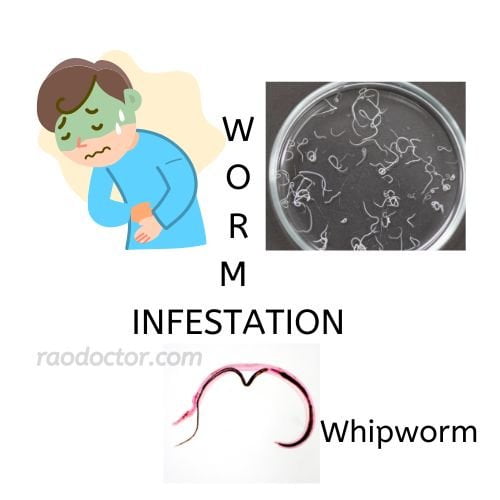
Image Source: Canva Pro
Introduction
In my last article on Cluster Headache, I had made a passing remark that my next article will be on a much-neglected topic-Worm Infestation- yet a very important topic for our overall health.
Hi, I am Dr. Rao. Before we go ahead, how about listening to this article while scrolling down? Just click the button below-
Intestinal worms are devouring every human on this planet. Even after all the development we have achieved, there are still many people who suffer from intestinal worms. Intestinal worms can be found in almost any part of the body and can pose a serious threat to your health. According to the World Health Organization (WHO), about 2 billion people are infected by intestinal worms.
Prologue
Dear reader of this article,
Before I go ahead with the full description of this article, kindly note that the information provided in this article is to educate you on various parts of this ailment. The treatment/s suggested after the description of the ailment should not be construed as a prescription and should be discussed with your family physician and his/her advice should be followed.
How common is worm infestation worldwide?
Way back in 1983, when I was doing my internship at a Rural Health Center, one child was brought to the clinic with complaints of-
- Failure to thrive, meaning not growing as per age
- Bloated belly (potbelly)- see picture below
- excessive hunger
- White spots on the face of a child [ as shown below in one of my patients]

A high prevalence of these parasites is seen in regions with unclean drinking water, substandard sanitation, and unhygienic living conditions. There are multiple home remedies for getting rid of intestinal worms which will not only help you get rid of them but also strengthen your immune system against further attacks from these parasites.
Intestinal worms are parasites that live inside the intestines of humans or other animals as their host. They feed off the nutrients we take in as food by sucking the blood from our intestines, making them our enemies.
These parasites include roundworms, flatworms, and tapeworms, among others. Depending on their type and location within the body they cause different diseases called helminthiasis–which means “worm infection” –and collectively they are referred to as intestinal worms or enterobiasis.
Why is learning about intestinal worms important?
Intestinal worms are the root cause for many ailments, namely anemia, poor growth and mental development, diseases like cysticercosis and hydatid cyst [discussed later below]. So, knowing them and eliminating as well as preventing them is very crucial for our well-being and good health.
How do these worms enter our body?
I have got a diagram for you to understand how most of these worms enter our body. The picture below shows how one type of worms, a whipworm, enters our body- have a look-

The picture above reveals how most of the worms enter our body. Let’s now dig into the various types of worms that can infest our bowels and the ways to get rid of them-
Hookworm [Biological name- Ankylostoma Duodenale]
Hookworms are the most common type of intestinal worm. They can infect almost all parts of the intestines in our body. They live in the small intestine and feed on the blood by piercing the intestinal wall with their mouth.
Hookworms can cause severe anemia and lead to death if left untreated. Early signs of hookworm infection include itching, swelling and pain in the skin around the anus and irritation in the upper part of the intestine or stomach.
The infection can cause diarrhea or constipation. However, most people who are infected do not show any signs or symptoms as the parasite is small and can be difficult to detect.
How to get rid of this intestinal worm?
The best way to deal with hookworms is to prevent them from infecting the body in the first place. Here are a few ways you can do that: –
- Avoid walking barefoot outdoors or in areas that are unhygienic as hookworms are transmitted through the soil by walking barefoot.
- – Cover your skin while outdoors as much as possible.
- – Wash your hands thoroughly and regularly, especially after a walk or outdoor activity.
- – Avoid eating food that is contaminated with soil, like unwashed fruits and vegetables.
Treatment of Hookworms-
There are mostly 2 medicines- Mebendazole and Albendazole. Whereas mebendazole comes in 100 mg strength to be had 2 times a day for 3 days, albendazole is available as 400mg tablet to be had one tablet once only.
Available as- Mebex and Zental 400 in India.
Useful Resource-
Roundworm-[Biological name- Ascaris lumbricoides]
Roundworms are those types of intestinal worms that infect human beings. It lives in the human small intestine and feeds on the blood by piercing the intestinal wall with their mouth. Early signs of roundworm infection include abdominal pain and diarrhea. Other symptoms include nausea, vomiting and tiredness. Children might also have learning and behavioral problems as a result of roundworm infection.
How to get rid of roundworms?
Roundworms are transmitted when a person accidentally ingests eggs in soil, food or water contaminated with feces from an infected person. To prevent roundworm infection, you should: –
- Avoid eating raw and uncooked vegetables, fruits and berries that are grown in soil.
- – Wash your hands thoroughly and regularly, especially after visiting a public place.
- – Wear appropriate footwear while indoors and outdoors.
- – Avoid walking barefoot outdoors.
Medications are the same as above for hookworm.
Whipworm- [Biological name- Trichuris trichiura]
Whipworms are the common type of intestinal worm that affects the human intestinal tract. This type of worm has a tail that looks like a whip, hence the name [see below].
The female worms lay their eggs in the intestines. When the eggs hatch, the baby worms feed on the intestinal wall and cause inflammation and irritation.

Early signs of whipworm infection include abdominal pain, diarrhea, fatigue, nausea and vomiting. Although these worms are very small, they might cause swelling and enlargement of the abdomen.
How to get rid of intestinal worms?
Whipworms are transmitted when a person accidentally ingests eggs in soil, food or water contaminated with feces from an infected person. You can prevent infection by following these practices:
– Avoid eating raw and uncooked vegetables, fruits and berries that are grown in soil.
– Wash your hands thoroughly and regularly, especially after visiting a public place.
– Wear appropriate footwear while indoors and outdoors.
– Avoid walking barefoot outdoors.
Medicines to treat whipworm
- Mebendazole- 100 mg taken twice a day for 3 days
- Albendazole [400 mg] or Ivermectin [.02 mg/kg body weight] once a day for 3 days.
Tapeworm-[Biological name-Taenia saginata (beef tapeworm) Taenia solium (pork tapeworm)]
Tapeworms are large intestinal worms that can infect the small intestine, the large intestine or both. In fact, they are so large that they can occupy your entire intestine.

Tapeworm affects those who eat meat that is eaten raw or is undercooked [see the picture below].
The adult worms live in the intestines, where they feed on the nutrients and vitamins of the food that is consumed.
Lifecycle of Tapeworm-
The diagram below shows how a tapeworm gains entry to our body-

Signs-symptoms of Tapeworm Infestation
Early signs of tapeworm infection include pain and swelling around the abdomen, loss of appetite and weight, diarrhea, nausea and vomiting. Children can also show signs of irritability and loss of interest in activities.
As the disease progresses, the larvae of these worms can enter blood circulation a lodge in body parts such as the brain and muscles and form a cyst [cysticercosis] or enter the lungs or liver to form something called hydatid cyst.
How to get rid of Tapeworms?
You can prevent tapeworm infection by following these practices:
– Avoid eating raw or unpeeled fruits and vegetables.
– Avoid eating uncooked, undercooked or processed meat or fish. – Wash your hands thoroughly and regularly, especially after visiting a public place.
– Wear appropriate footwear while indoors and outdoors.
– Avoid walking barefoot outdoors.
Medicines For Tapeworm-
- Praziquantel or Nitazoxanide: – These are two antiparasitic drugs commonly used in getting rid of tapeworm. A single oral dose of praziquantel is enough to kill the worms. E.g.- Zenticide 600 mg.
- For symptoms due to cysticercosis, sometimes corticosteroids and an antiparasitic drug with or without surgery
Pin worms– [Biological name- Enterobius vermicularis]
Pinworms are small pin-like intestinal worms that infect the intestines of human beings, specifically small children. The female worms lay their eggs in the perianal skin, mostly in the night while sleeping, and the young worms feed on the lining of the intestines. When the worms mature, they travel to the rectum, where they feed on the skin, creating a foul odor.
Early signs of pinworm infection include-
- anal itching and irritation
- insomnia,
- irritability
- and frequent urge to go to the toilet.
How to get rid of intestinal worms?
The best way to prevent pinworm infection is to practice good hygiene and sanitation. You should also avoid close physical contact with others. When you are infected with this worm, you should:
- – Wash your hands thoroughly and regularly, especially after visiting a public place.
- – Wear appropriate footwear while indoors and outdoors.
- – Avoid walking barefoot outdoors, especially on lawns or grassy areas.
Flukes– [Biological name- Trematodes]
Flukes are flat intestinal worms that infect the intestines and organs like liver and lungs of human beings. They are more common in animals like dogs and sheep.
The females lay their eggs in the small intestines and grow as larvae. When they mature, they migrate to the liver, where they mature into adult worms and produce eggs. In the liver, these eggs form a cyst that resembles a bunch of grapes and is called a Hydatid cyst.

The hydatid cyst then releases mature worms in the blood that migrate to other places in our body like the lungs and brain to form more cysts.
Early signs of fluke infection include abdominal pain, diarrhea, nausea and vomiting. In rare cases, the infection can cause liver damage and lead to death.
How to get rid of intestinal worms? You can prevent fluke infection by following these practices:
- Avoid eating raw or unpeeled fruits and vegetables.
- Avoid eating uncooked, undercooked or processed meat or fish.
- Wash your hands thoroughly and regularly, especially after touching or petting an animal.
- Wear appropriate footwear while indoors and outdoors – Avoid walking barefoot outdoors.
Medicines for Flukes-
For patients ≥ 6 years treatment is done with
- Two doses of 10 mg/kg triclabendazole given 12 hours apart, orally with food. Or
- Nitazoxanide 500 mg orally twice a day for 7 days.
- Both these medicines should be consumed only after your doctor prescribes it.
How to get rid of intestinal worms naturally?
By following a healthy lifestyle, you can prevent most types of intestinal worms. You should also avoid close physical contact with others. When you are infected with worms, you should:
– Wash your hands thoroughly and regularly, especially after visiting a public place. – Wear appropriate footwear while indoors and outdoors.
– Avoid walking barefoot outdoors. You can also visit your doctor to know more about the types of intestinal worms and the best way to get rid of them. Your doctor will prescribe medication to treat the worms and may also recommend a change in diet to help you get rid of intestinal worms naturally.
Are there any home remedies to treat worm infestation?
After researching a bit on internet, I came across a few home remedies to treat worm infestation. Even though they have not been proven scientifically, I guess there is no harm in trying them.
Here are some home remedies you can try out-
The Garlic remedy
Garlic is used to treat intestinal worms. It contains allicin, which is an active compound that helps to treat intestinal worms. It is also used to treat other infections like cold and cough.
The recipe
Take 10-12 garlic cloves and crush them. Add them to a cup of water and boil the mixture. Simmer until the water reduces to half the original volume. Drink this mixture twice a day for three to four days to get rid of intestinal worms.
Neem and ginger
Neem and ginger are used to treat intestinal worms.
The recipe
Take a handful of fresh neem leaves and a few pieces of fresh ginger. Crush them together and boil them in water until the water reduces to half the original volume. Drink this mixture twice a day for three to four days to get rid of intestinal worms.
You can also boil three neem leaves and three slices of fresh ginger in a cup of water. Simmer until the water reduces to half the original volume. Drink this concoction twice a day for three to four days to get rid of intestinal worms.
Cinnamon and turmeric remedy
Cinnamon is used to treat intestinal worms.
The recipe
Take two teaspoons of cinnamon powder and one teaspoon of turmeric powder. Add a pinch of salt to this mixture. Mix the ingredients well.
Consume one teaspoon of this mixture with a glass of water once or twice a day for three to four days.
This remedy can also be used to treat such diseases as diarrhea, dysentery, flatulence, vomiting and stomach ache.
Black pepper and clove treatment
Clove is used to treat intestinal worms.
The recipe
Take four cloves and four black peppers. Grind them into a fine paste by adding little water. Consume this mixture with a glass of water once or twice daily for three to four days to cure intestinal worms naturally without any side effects.
You can also add one teaspoon each of ginger juice and honey in two teaspoons each of clove powder and black pepper powder before consuming it with water twice daily for three to four days for the same purpose.
Fenugreek seed treatment
Fenugreek seeds are very effective in treating intestinal worms as they contain anti-parasitic properties that help get rid of them naturally without any side effects.
The recipe
Take five tablespoons each of fenugreek seeds, coriander seeds, dry ginger powder and dry pomegranate seeds (anardana). Crush all the ingredients together into fine powder by adding little water and consume it with a cup of milk once daily for two weeks for best results.
Final thoughts-
As I conclude this article, I hope I have provided enough knowledge on both medical as well natural ways to tackle worm infestation.
If you have any doubts or questions about this topic, feel free to put them in the form below. I will reply to all the queries personally at the earliest.
My next topic will be on a common ailment these days- Backache and Sciatica. Be among the first ones to receive this article- sign into my newsletter by filling the form at the end of this article.
Disclosure-
This article contains links that may benefit the author by way of a small commission the reader clicks them and make a purchase, without any extra cost to the purchaser.

